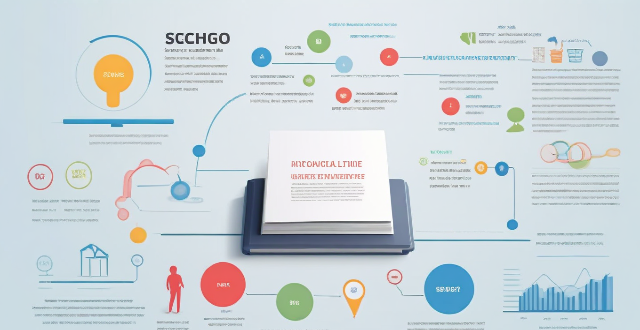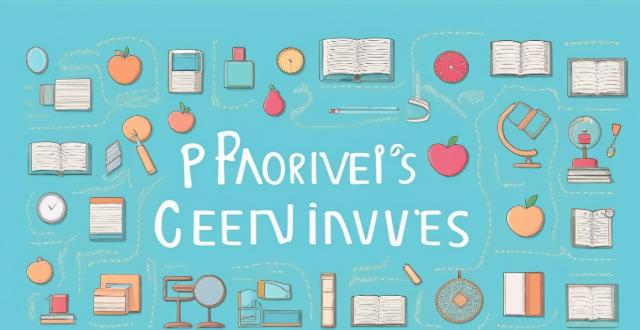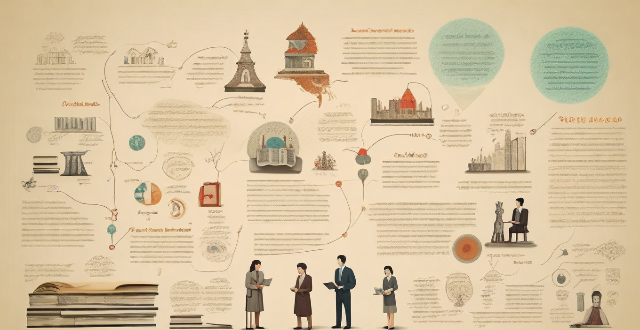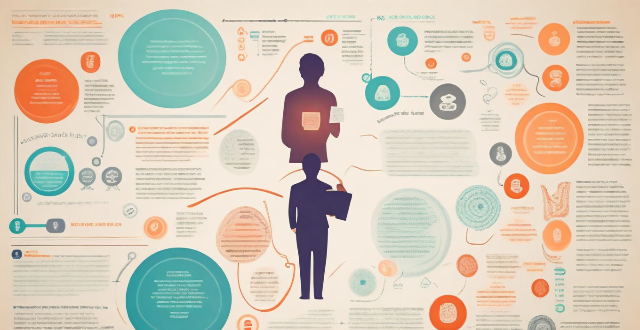Self Study

What role does self-discipline play in following a study plan ?
Self-discipline is crucial in following a study plan effectively. It involves setting goals, prioritizing tasks, maintaining focus on objectives, and avoiding distractions. By breaking down long-term goals into smaller, manageable tasks and allocating time wisely, self-disciplined individuals can maximize productivity and achieve academic success efficiently. Consistency, overcoming procrastination, and staying motivated are also key factors in sticking to a study plan. Developing strong self-discipline skills can help students reach their full potential.

How can I increase my motivation to study ?
Motivation is crucial for success in education, but staying motivated can be challenging. To increase your motivation to study, set clear goals, create a study plan, find a study group or partner, stay positive, and reward yourself for meeting goals.

What are some effective strategies for improving study habits and motivation ?
Effective strategies for improving study habits and motivation include setting clear goals, creating a study plan, eliminating distractions, using active learning techniques, staying motivated, seeking help when needed, and practicing self-care. These strategies can lead to academic success.

How can I improve my study habits to increase my learning efficiency ?
The text provides a comprehensive guide on how to improve study habits for higher learning efficiency. It suggests developing a consistent study schedule, creating an optimal study environment, using active learning techniques, breaking down study material, employing time management tools, setting clear goals, taking care of oneself, utilizing teaching as a learning tool, seeking help when needed, and reflecting on one's study methods. These strategies aim to enhance focus, concentration, memory retention, understanding, energy, interest, objectives, progress, brain rest, nourishment, knowledge reinforcement, assistance, perspectives, engagement, effectiveness evaluation, and approach adaptation. Consistency and self-reflection are emphasized as key factors in continuous improvement of academic performance.

How can I balance my study plan with other commitments like work or family ?
Balancing a study plan with other commitments such as work or family can be challenging, but it is possible to achieve a harmonious balance. Here are some tips on how to do it: 1. **Prioritize Your Tasks**: Identify your priorities and create a to-do list. 2. **Set Realistic Goals**: Break down goals into smaller tasks and be realistic about what you can accomplish. 3. **Create a Schedule**: Allocate specific times for studying and plan around work and family commitments. 4. **Minimize Distractions**: Turn off notifications and find a quiet study space. 5. **Take Breaks and Practice Self-Care**: Take regular breaks and engage in self-care activities. 6. **Seek Support from Others**: Communicate with your employer and lean on family and friends for support. By following these tips, you can effectively balance your study plan with other commitments while maintaining a healthy work-life balance.

How can I overcome procrastination and stay motivated to study ?
Procrastination is a common problem that affects many students. It can be challenging to stay motivated and focused on your studies, especially when there are so many distractions around you. However, there are several strategies you can use to overcome procrastination and stay motivated to study. Here are some tips: - Set clear goals for yourself. Make sure your goals are specific, measurable, achievable, relevant, and time-bound (SMART). For example, instead of saying "I want to do well in my math class," say "I want to score at least 90% on my next math test." Having a clear goal will help you stay focused and motivated. - Break tasks into smaller, more manageable chunks. Large tasks can be overwhelming and lead to procrastination. To avoid this, break your tasks into smaller, more manageable chunks. For example, if you have a research paper to write, break it down into smaller tasks such as selecting a topic, conducting research, creating an outline, writing the introduction, etc. Completing each small task will give you a sense of accomplishment and keep you motivated. - Create a study schedule. Creating a study schedule can help you stay organized and on track. Allocate specific times for studying, breaks, and other activities. Stick to your schedule as much as possible, but also be flexible enough to adjust it if necessary. Having a plan will help you avoid wasting time and reduce the likelihood of procrastination. - Eliminate distractions. Distractions can easily lead to procrastination. To avoid this, eliminate distractions such as social media, television, or video games during your study time. Find a quiet place where you can focus without interruptions. Turn off your phone or put it on silent mode to avoid distractions from notifications. - Use time management techniques. Using time management techniques such as the Pomodoro technique or the Eisenhower matrix can help you stay focused and productive. The Pomodoro technique involves working for 25 minutes and then taking a five-minute break. The Eisenhower matrix helps you prioritize tasks based on their urgency and importance. These techniques can help you manage your time effectively and reduce procrastination. - Reward yourself. Rewarding yourself after completing a task can help you stay motivated. Set up rewards for yourself after completing each task or reaching a milestone. For example, you could treat yourself to a favorite snack or watch an episode of your favorite TV show after finishing a study session. This will give you something to look forward to and keep you motivated. - Seek support. Finally, seek support from friends, family, or teachers if you're struggling with procrastination. They can offer encouragement, advice, or accountability to help you stay on track. Joining a study group or finding a study partner can also provide motivation and support. In conclusion, overcoming procrastination requires discipline, planning, and self-motivation. By setting clear goals, breaking tasks into smaller chunks, creating a study schedule, eliminating distractions, using time management techniques, rewarding yourself, and seeking support, you can stay motivated and focused on your studies.

What are some tips for leading a successful study group ?
Leading a successful study group requires careful planning, effective communication, and strong leadership skills. To achieve this, it is important to set clear objectives, organize meetings effectively, encourage active participation, foster collaboration and teamwork, and evaluate progress regularly. By following these tips, you can create a productive and enjoyable learning experience for all members of your study group.

What role does self-awareness play in self-assessment techniques ?
Self-awareness is a crucial component of self-assessment techniques, helping individuals identify strengths and weaknesses, set realistic goals, enhance emotional intelligence, improve self-confidence, and foster personal growth.

How can I effectively communicate with my study group members ?
Effective communication is essential for the success of any study group. To communicate better with your study group members, set clear objectives, use active listening skills, encourage open discussion, provide constructive feedback, and stay organized. By following these tips, you can work together to achieve your academic goals.

What are the benefits of guided vs self-guided nature and wildlife tours ?
The article discusses the advantages and disadvantages of guided versus self-guided nature and wildlife tours. Guided tours offer professional guidance, organized experiences, safety and support, and local connections but can be more expensive and less flexible in terms of itinerary and schedule. Self-guided tours, on the other hand, allow for customized itineraries, independence, cost efficiency, and deeper engagement with the environment, but require more planning and may lack the safety net provided by a guide or group. The choice between these two types of tours depends on personal preferences, skill level, goals, and budget.

What are some effective study techniques for college students ?
**Effective Study Techniques for College Students:** College students can improve their academic performance by adopting effective study techniques. These include creating a study schedule, finding a suitable study environment, using active learning strategies, breaking information into chunks, practicing retrieval and review, staying organized, collaborating with peers, maintaining a healthy lifestyle, and seeking help when needed. Consistency, minimizing distractions, engaging with the material, chunking information, quizzing oneself, spaced repetition, utilizing note-taking systems and digital tools, participating in study groups, getting enough sleep and exercise, and leveraging academic support services are all crucial elements of successful studying. It's important to experiment and find out which methods work best for individual needs.

How can women build their self-confidence in the workplace ?
The text provides a summary of how women can build self-confidence in the workplace through embracing achievements, setting realistic goals, developing new skills, practicing self-care, surrounding themselves with positive influences, speaking up and owning ideas, seeking mentorship, challenging themselves, celebrating uniqueness, and learning from failure.

What are some effective methods for conducting a self-assessment ?
This text discusses the importance of self-assessment for personal and professional growth, emphasizing that it helps individuals identify strengths, weaknesses, and areas for improvement. It presents three effective methods for conducting a self-assessment: 1. **SWOT Analysis**: This involves identifying one's strengths, weaknesses, opportunities, and threats. The process includes making a list of skills and qualities, identifying areas of struggle or lack of confidence, looking for growth opportunities, and recognizing external factors that may hinder progress. 2. **Reflective Journaling**: This method involves writing down thoughts, feelings, and experiences on a regular basis. It starts with choosing a journaling method, setting a schedule, and reflecting on experiences by asking questions about learning, handling challenges, and areas for improvement. 3. **Goal Setting**: This is an essential part of self-assessment that helps in identifying achievement targets and creating a plan to reach them. The steps include defining specific, measurable, achievable, relevant, and time-bound (SMART) goals, creating an action plan, and regularly tracking progress towards these goals.

What are some effective study techniques for learning history ?
Effective study techniques for learning history include understanding chronological order, using visual aids, active reading, group study, practice writing, connecting historical events with the present, using multimedia resources, and visiting museums and historical sites. These methods can help deepen understanding and make the subject more engaging and rewarding.

How do I create an effective study plan ?
Creating an effective study plan is crucial for academic success. Here are some steps to help you create a successful study plan: 1. Set clear goals that are specific, measurable, achievable, relevant, and time-bound (SMART). 2. Assess your time and determine how much you can realistically dedicate to studying each day/week. 3. Allocate time for each subject based on difficulty level and proficiency. 4. Create a schedule using a calendar or planner and stick to it as much as possible. 5. Incorporate short breaks during study sessions to avoid burnout and maintain focus. 6. Regularly review progress and adjust the study plan accordingly. 7. Eliminate distractions by finding a quiet place to study and turning off unnecessary devices. 8. Stay motivated by reminding yourself of goals and celebrating small achievements. 9. Seek help when needed from teachers, tutors, or classmates. By following these steps, you can create an effective study plan that will help you achieve academic success while managing your time efficiently. Remember to stay flexible and adjust your plan as needed to accommodate changes in your schedule or priorities.

What are the advantages and disadvantages of working in a study group ?
The advantages of working in a study group include improved learning outcomes, enhanced collaboration skills, motivation and accountability, and exposure to diverse perspectives. However, the disadvantages include time management challenges, unequal participation, lack of individual attention, and personality conflicts. To make the most of a study group, it is important to establish clear guidelines, set expectations for participation, and communicate openly with group members about any issues that arise.

How can I encourage active engagement in a study group ?
This article discusses strategies for encouraging active engagement in a study group, including setting clear goals and objectives, fostering a collaborative environment, assigning roles and responsibilities, providing opportunities for feedback and reflection, using technology to facilitate engagement, and offering incentives for participation. The author emphasizes the importance of active engagement for the success of a study group and encourages readers to make it a priority from the start.

What are some good tools for creating and sharing study materials ?
This article discusses various tools that can be used for creating and sharing study materials. Google Docs, Canva, and Quizlet are some of the best tools for creating study materials, while Dropbox, Padlet, and Edmodo are great for sharing them. These tools offer features like collaboration, accessibility, integration, design, gamification, storage, security, visualization, educational focus, and assessment. By utilizing these tools, students can enhance their learning experience and collaborate with others more efficiently.

How can I stay focused during long study sessions ?
To stay focused during long study sessions, create aTo stay focused during long study sessions, create a by minimizing distractions create a conducive environment by minimizing distractions and optimizing your workspace. Establish a routine with clear objectives and stick to a schedule. Use time management techniques like the Pomodoro technique and prioritize tasks. Stay motivated and engaged by rewarding yourself and mixing up your study methods. Take care of yourself by getting adequate sleep, eating healthy meals, and exercising regularly.

In what ways do sports promote self-discipline and self-control ?
Sports play a crucial role in promoting self-discipline and self-control by teaching goal setting, time management, perseverance, impulse control, delayed gratification, and stress management. These skills are essential for success in all areas of life, including personal and professional relationships, academics, and careers. By participating in sports, individuals develop valuable character traits that can lead to long-term success and well-being.

How can I create an effective study schedule for exams ?
Creating an effective study schedule for exams is crucial for academic success. To create a study plan that works for you, follow these steps: 1. Identify your goals and prioritize your study time effectively. 2. Assess your time availability and be realistic about the amount of time you can dedicate to studying without sacrificing other important aspects of your life. 3. Break down the material into smaller sections or topics and map out when you will study each topic using a planner or calendar. 4. Create a study schedule based on your goals, time availability, and material breakdown. Allocate enough time for each topic, schedule regular breaks, incorporate different study techniques, and be flexible with your schedule. 5. Stick to your schedule as much as possible and use reminders or alarms to help you stay on track. 6. Periodically evaluate your progress and adjust your study schedule accordingly. By following these steps, you can maximize your chances of achieving academic success while minimizing stress and anxiety during exams.

How can I avoid procrastination and stay motivated to learn ?
Procrastination is a common problem that affects many people, especially when it comes to learning. To avoid procrastination and stay motivated to learn, set clear goals, create a study schedule, eliminate distractions, use rewards and incentives, find a study group or partner, and practice self-care.

What are the benefits of collaborating in a study group ?
**Benefits of Collaborating in a Study Group** Collaborating in a study group offers numerous benefits to students, including enhanced learning and understanding, improved academic performance, development of valuable skills, and emotional and social benefits. By participating in study groups, students can gain different perspectives, active participation, immediate feedback, better grades, increased retention, preparation for class discussions, communication skills, teamwork and collaboration, critical thinking, time management, reduced anxiety and stress, building friendships, increased motivation, and networking opportunities. Overall, collaborating in a study group is an excellent way to make the most out of your educational journey while building lasting relationships along the way.

How do I adapt my study plan if it's not working as expected ?
If your study plan is not working as expected, it's important to identify the root cause of the problem and make adjustments accordingly. Here are some tips on how to adapt your study plan: ### Identify the Problem 1. Assess your progress 2. Identify potential roadblocks 3. Reflect on your study habits ### Make Adjustments to Your Study Plan #### Change Your Study Environment - Find a quiet space - Create a comfortable study area #### Improve Your Time Management Skills - Create a schedule - Prioritize tasks - Use time-management tools #### Adjust Your Study Methods - Try different study techniques - Break down complex topics - Take breaks #### Seek Help When Needed - Ask for clarification - Join a study group - Consider hiring a tutor By identifying the problem and making adjustments to your study plan, you can improve your chances of success and achieve your academic goals. Remember to be patient and persistent in your efforts, and don't be afraid to seek help when needed.

How can I stick to my study schedule without getting distracted ?
Sticking to a study schedule without getting distracted requires discipline, motivation, and the right strategies. Here's how you can stay on track with your studies: 1. Setting clear goals: Define objectives and break them down into smaller parts to make progress without feeling overwhelmed. 2. Creating a conducive environment: Minimize distractions by finding a quiet space, turning off notifications, and organizing your study area. 3. Utilizing time management techniques: Use a planner to allocate specific time slots for studying and implement the Pomodoro Technique to maintain concentration and prevent burnout. 4. Staying motivated: Give yourself small rewards after completing study sessions or achieving milestones, and visualize success to provide the necessary push to continue. 5. Taking care of yourself: Incorporate regular exercise and ensure adequate sleep to improve mental clarity and concentration. 6. Eliminating procrastination: Tackle procrastination by addressing its root cause and starting with the hardest task to reduce the likelihood of procrastination. By consistently applying these strategies, you can enhance your focus and efficiency in your academic pursuits. Remember, consistency is key, so persevere and stay committed to your study schedule for the best results.

How does poor time management contribute to test anxiety ?
Poor time management significantly contributes to test anxiety by causing insufficient preparation, lack of practice, rushed review, fatigue, heightened pressure, diminished confidence, and mental health implications. To mitigate these effects, students should create a study timetable, establish regular study habits, ensure proper breaks and sleep, maintain a healthy lifestyle, and practice mindfulness and relaxation techniques.

How can we promote self-care and self-love for women's mental health ?
Promoting self-care and self-love for women's mental health requires a comprehensive approach that includes creating awareness, providing resources, and establishing supportive environments. This involves understanding the importance of mental health, dispelling misconceptions, normalizing conversations, providing accessible information, offering therapeutic support, building community networks, implementing workplace initiatives, advocating for policies, encouraging mindfulness and meditation, promoting healthy lifestyle habits, and fostering self-reflection and growth. By adopting these strategies, we can empower women to take charge of their mental health and lead fulfilling lives.

What are the key self-assessment techniques for personal growth ?
Self-assessment techniques help identify strengths, weaknesses, and areas for improvement. Key methods include reflecting on past experiences, setting goals and tracking progress, seeking feedback from others, keeping a journal or diary, and practicing mindfulness and self-awareness. These techniques provide different perspectives and help individuals understand their personal growth over time.